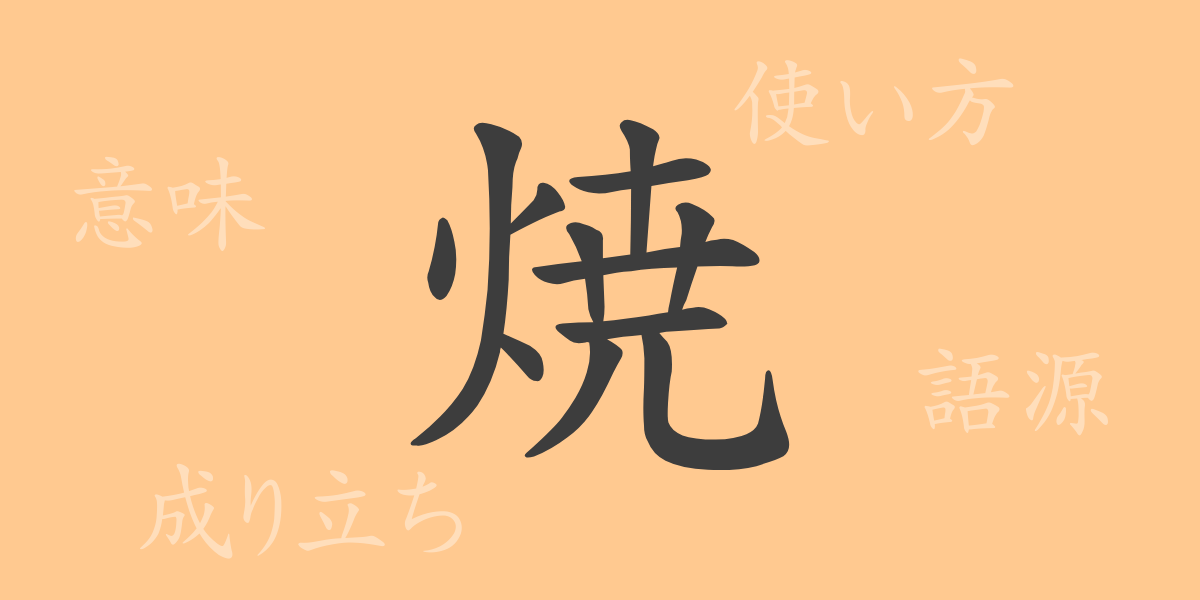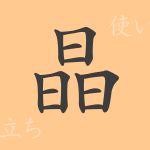The Japanese character “焼(やけ)” is deeply rooted in Japan’s culture and everyday life, appearing in a wide range of scenarios. This single character encapsulates aspects from culinary practices to craftsmanship, reflecting its close ties to the lives of the Japanese people. This article explores the allure of the commonly used kanji “焼,” delving into its origins, meanings, applications, and even idioms and proverbs associated with it.
Origins of 焼(やけ)
The kanji “焼” symbolizes the act of heating or cooking something with fire. Originating in ancient China, it is composed of the radical for fire (火偏) and a component representing meat (originally indicating internal organs), illustrating the cooking of food with fire. Over time, as the act of burning diversified, its applications broadened, leading to its current widespread use in various contexts.
Meaning and Usage of 焼(やけ)
The fundamental meaning of “焼” involves processing something using fire or heat. It covers culinary actions like “to grill” or “to bake,” ceramic firing in kiln work known as “firing,” and even sun tanning referred to as “sunburn.” Figuratively, it can also imply leaving a strong impression, as in “searing into one’s memory.”
Pronunciation, Stroke Count, and Radical of 焼(やけ)
The kanji “焼” has various readings and basic details as follows:
- Reading: On’yomi (音読み) is “ショウ”, while Kun’yomi (訓読み) includes “やく” and “やける”.
- Stroke Count: “焼” consists of 12 strokes.
- Radical: The radical is fire (火偏).
Idioms, Phrases, and Proverbs Using 焼(やけ) and Their Meanings
There are numerous idioms and phrases involving “焼,” each carrying unique implications:
- 焼肉(やきにく): Grilled meat, commonly known as “yakiniku”.
- 焼却(しょうきゃく): The act of burning something to dispose of it, known as “incineration”.
- 心に焼き付ける(こころにやきつける): To leave an indelible impression, akin to “engraving in one’s memory”.
- 焼け石に水(やけいしにみず): Literally “water on a burning rock,” used to describe actions that are futile or ineffective.
Summary on 焼(やけ)
The kanji “焼” carries a rich array of meanings that extend far beyond its simple form. From culinary arts to expressions of deep emotional experiences, this character is an indispensable element of the Japanese language. Through this article, we hope you have gained insight into the multifaceted nature of “焼” and its underlying cultural significance.

























